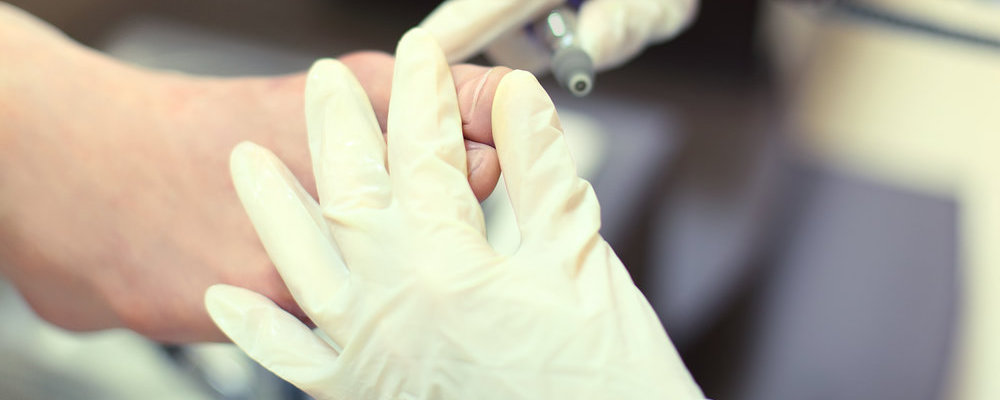Table of Contents
Open Wound Care St. Louis, MO

An open wound not only takes you off of your feet, but it also has the potential to lead to some very serious consequences that keep you off of your feet.
For any type of wound developing on your foot, keep an eye on it to make sure it is going through the proper stages of healing: inflammation, followed by new cells forming over the skin (commonly known as scabs) and, finally, the scar tissue maturing to remodel and fully repair the wound. Complications in the healing process may be due to your health or a co-existing systemic illness.
If the wound doesn’t improve after four weeks or has not healed after eight weeks, it would be classified as a chronic wound that is in need of professional care.
This type of wound could be:
- A diabetic foot ulcer
- A venous ulcer
- A pressure ulcer
- A non-healing surgical wound
- A metabolic disease-related wound
Any one of the above wounds should be treated as soon as possible before it worsens. An open wound is a portal of entry for pathogens and bacteria to enter and cause infection. Once an infection takes hold, the wound becomes even harder to treat and can lead to serious conditions including the loss of a limb or, in very severe cases, your life.
If you suffer from the symptoms associated with Diabetic Foot Ulcer, contact Missouri Foot & Ankle today to see how we can help!
What is a Diabetic Foot Ulcer?
A diabetic foot ulcer is an open sore that most often occurs on the bottom of the foot. They can form because of many factors, including poor circulation, foot deformities, trauma to the foot, or friction and pressure that cause irritation.
Poor blood flow to the foot can make it even harder for even a minor cut to heal, such as a foot ulcer. Additionally, nerve damage from diabetes can decrease sensations in your feet, so you may not even know you have a slow-healing diabetic foot ulcer until it is too late.
When this happens, the foot can contract an infection and, in combination with diabetes’ other systemic problems that make overall healing difficult, you are at an increased risk for amputation and other severe problems.
Foot Wound Treatment
The first step of foot wound treatment is determining the type of wound and its cause. Only a professional has the proper equipment and expertise to do this through a variety of methods, including lab evaluation, skin and tissue grafting, radiology exams, and more.
As doctors of podiatry, the St. Louis podiatrists at Missouri Foot and Ankle are specially trained to diagnose and treat your foot wounds as well as heal any of your pain. We can come up with treatment program that fits your condition. Since every situation is different, there is no singular treatment for all foot wounds.
Some common options include:
- Dressing the wound
- Medication to enhance wound healing
- Debridement of necrotic tissue
- Specially formulated topical compounds based on genetic profile of the wound bacteria
- Nutritional management
….Plus many more options. One of your physicians will work alongside you to come up with the right plan. We want to get you back on your feet as soon as possible!
Finally, we advise that you should check your feet daily for wounds, especially if you suffer from diabetes. If you notice any slow-healing ulcers, be sure to address them immediately to prevent progression and further damage. Contact us to be safe!
